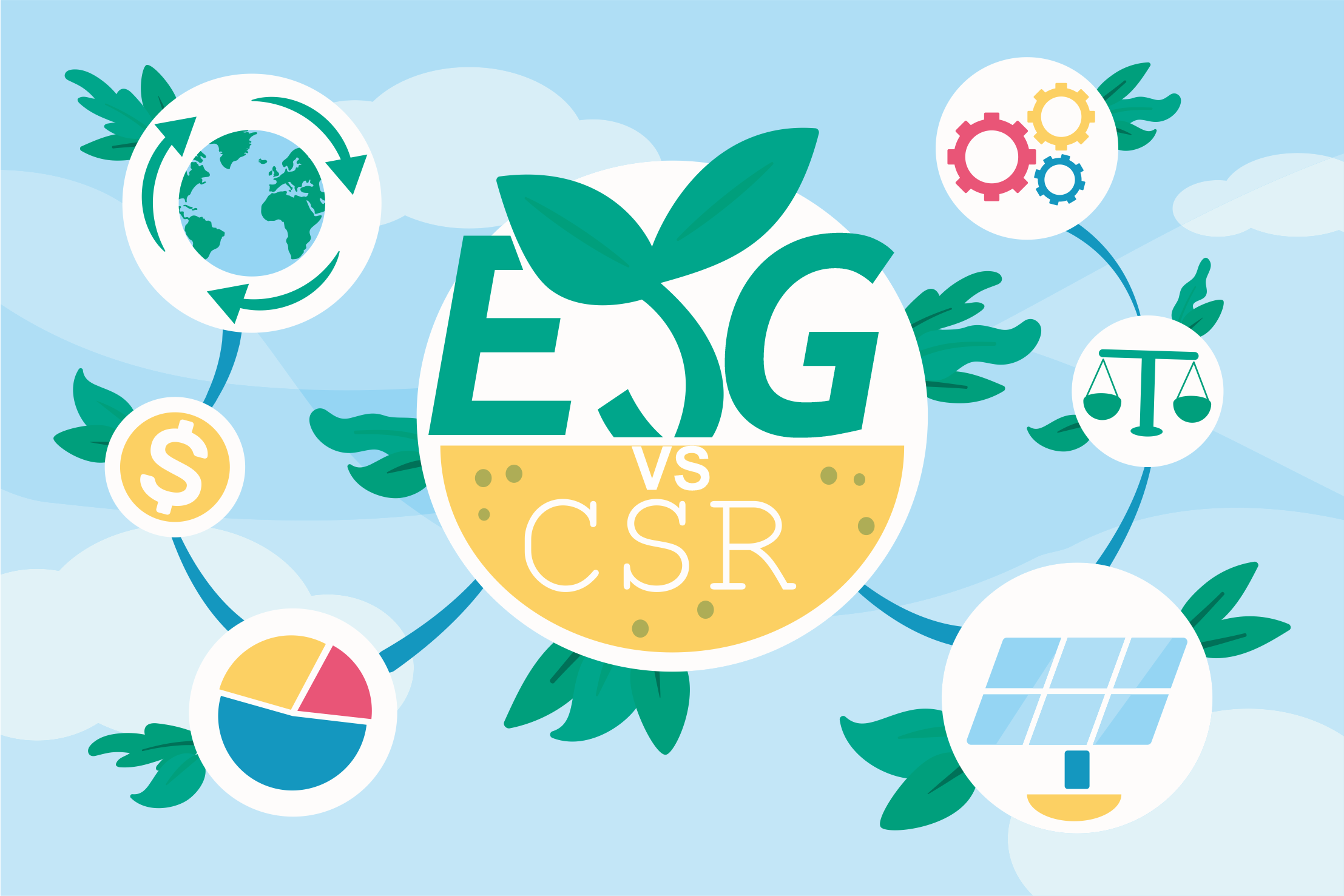
Introduction:-
Environmental, Social, and Governance (ESG) and Corporate Social Responsibility (CSR) are two terms that are frequently used interchangeably in the realm of business and sustainability. However, it's crucial to recognize that they represent distinct approaches to corporate responsibility. In this article, we will delve into the differences between ESG and CSR and shed light on their unique characteristics.
ESG: A Holistic Framework for Sustainable Business:
ESG encompasses a broader and more comprehensive framework than CSR. Environmental factors focus on a company's impact on the planet, including its carbon footprint, resource usage, and waste management. Social factors address the company's relationships with its employees, customers, and communities, emphasizing issues like diversity, labor practices, and community engagement. Governance factors pertain to the internal structures of a company, evaluating its leadership, ethics, and transparency.
ESG factors are integrated into a company's overall business strategy and decision-making processes. Investors, stakeholders, and customers increasingly consider a company's ESG performance as a critical indicator of long-term sustainability and ethical business practices.
CSR: A Voluntary Commitment to Social and Environmental Goals:
CSR, on the other hand, is often viewed as a set of voluntary initiatives that companies undertake to contribute positively to society and the environment. While CSR activities may align with ESG goals, CSR is typically seen as a series of philanthropic efforts and charitable actions, such as community outreach programs, charitable donations, and support for social causes.
CSR initiatives are external to the core business operations and may not be directly linked to a company's overall strategy. While CSR is commendable for its positive impact on communities and the environment, it is not as integrated into corporate governance and decision-making as ESG.
.
Key Differences:
Integration into Business Strategy:
ESG is integrated into a company's overall business strategy, affecting decision-making at all levels.
CSR initiatives are often standalone projects, separate from core business operations.
Conclusion:-
While ESG and CSR both aim to promote responsible business practices, their scopes and integration into corporate operations distinguish them. ESG represents a holistic and integrated approach that permeates a company's entire structure, whereas CSR is often perceived as a set of charitable initiatives undertaken separately from core business strategies. Recognizing these distinctions is essential for companies seeking to navigate the evolving landscape of corporate responsibility and sustainability.
